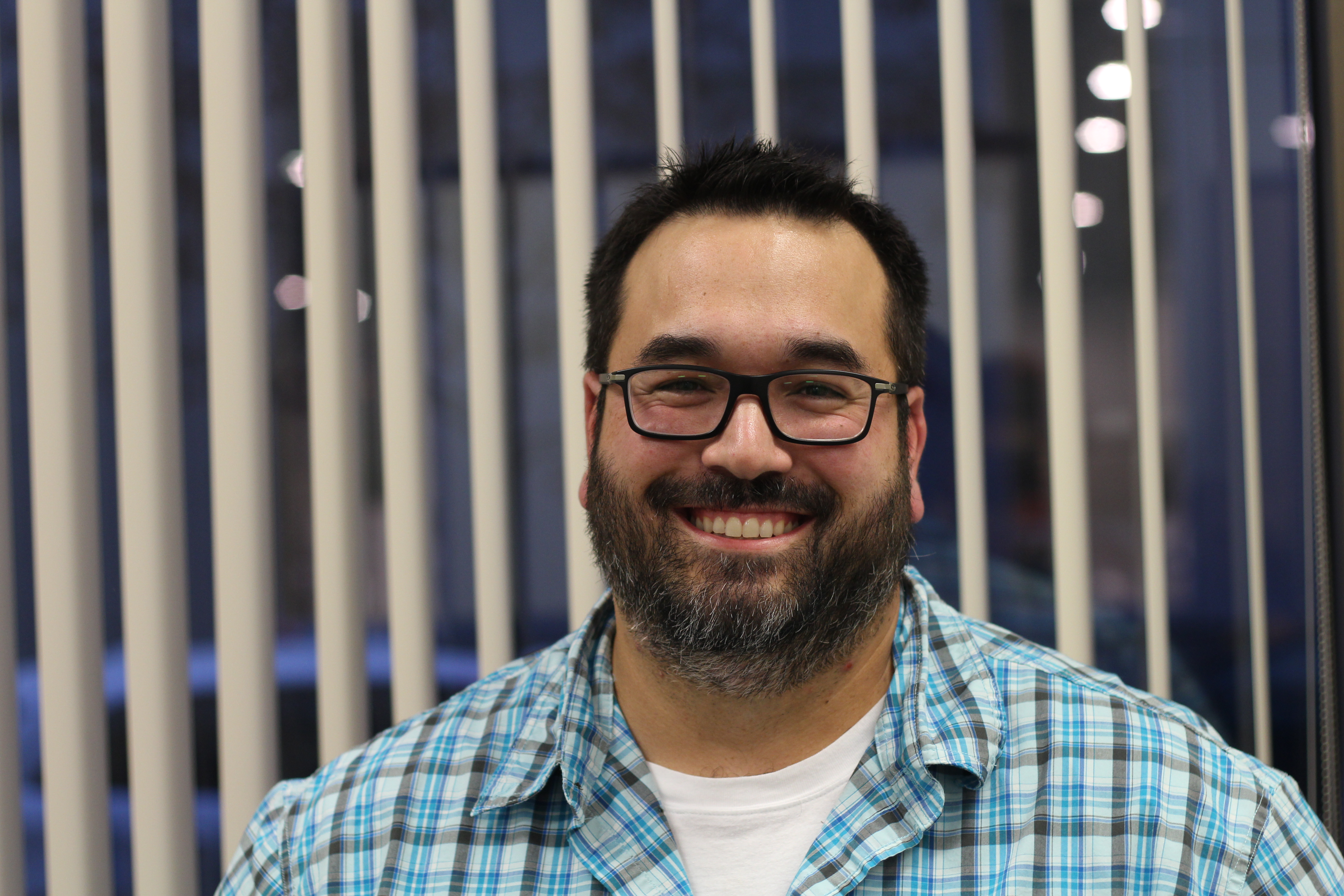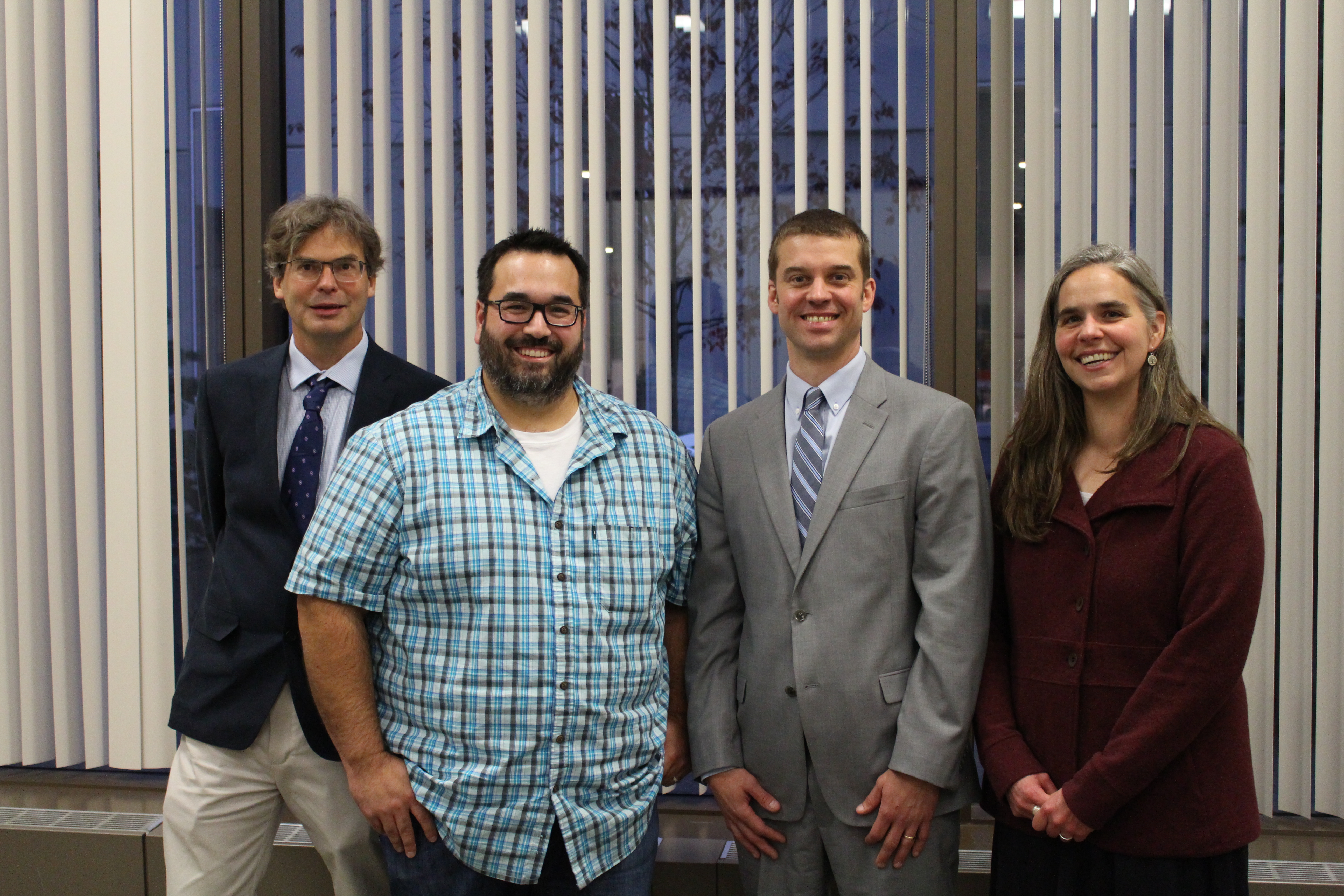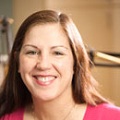
In October, the state department of education will honor the important work of teachers by selecting the next Teacher of the Year from four finalists. We’ve been bringing those teachers to the air this week. Today we’ll hear from the final candidate Eric Rush. He teaches 3rd grade at Ticasuk Brown elementary in North Pole and has been a teacher for nine years. He said he’s had many inspiring teachers in his life, but credits his wife, who is also a teacher, with encouraging him to become a teacher. Rush said even in 3rd grade, technology can be a challenging distraction, but also a terrific tool for creating interest and excitement for learning.
RUSH: If I have kids that are reluctant readers — that don’t want to read a book — I’ll say, “Hey. Have you ever seen an interactive book?” And they’ll be engaged in that. They’ll wanna know what’s an interactive book. And I can show them an interactive library on an iPad. I mean, it’s still reading, but it’s reading in a different way, and that kinda gets them really excited about reading.
TOWNSEND: How do you think classrooms today — the students that you’re teaching in your classroom — is different, both challenges and benefits, than when you were a student?
RUSH: The teacher was my main information, you know? If I wanted to know something new, the teacher was the main focus. If I didn’t listen to the teacher, I was missing out on a lot of information. Now the information’s all out there. Information’s at our fingertips. Now we’re no longer the focus of the information. We need to guide those children, the students, to find the information, find what’s fact, what’s fiction. All those things. And I feel teachers now, shouldn’t think that we’re the main speaker. The speaker should be the students. That’s how they’re learning. It’s a shift. The teacher’s no longer the main source of information. It’s kids learning how to use the information that’s already out there.
TOWNSEND: One of the things you said was, “I don’t teach to a class. I teach to the individual.” What did you mean by that?
RUSH: So, when I think of old teaching styles or old methods, I think the teacher up in the front of the blackboard or white board, and the crowd of students sitting and waiting for whatever the teacher’s saying. And the teacher’s teaching to the class. Well, some student might be putting his head down, might be paying attention to something else, but the teacher’s still going on with the lecture, or the presentation, or the lesson. I said that I teach to the individual. I make sure I make contact with those students. Each student, checking in with them and making sure they’re understanding the content that I just showed. So I usually do that with stations, so that if I introduce content to the whole class, then I break up my students to where I can met with them in small groups. Sometimes individually, so that’s what I meant about I teach to the individual instead of just the whole class.
TOWNSEND: When you think about the future of education and teaching, what do you think it will look like?
RUSH: It’s hard to say what it will be. What I hope it won’t be is where teachers are not in the classroom. What I would love to see is every school is incorporating devices but also having enough professional development and trainings in those areas. Certain devices or programs that will work for the child so that the child can progress at their own pace because not every kid is going to be third grade-ready at the beginning of the year for me. And I know that, and I wanna make sure that I have things available for that child to not feel like they’re going to keep being behind. I want them to feel like they’re getting success. The teachers that we have here, the three other teachers, I feel like it’s the momentum starting. Just to hear a lot of their ideas, just collaborating with other teachers, the movement has started but how much will it take to make it really change and adapt? I don’t know.
TOWNSEND: And when you say the movement, the movement toward what?
RUSH: The movement towards personalized learning where kdis are working at their own pace and they are feeling successful in schools. Where they’re not feling that they don’t want to go to school. They want to go to school. Have that excitement back. And I feel like that movement’s starting and I’m excited to see. What is it going to be like in 30 years, I don’t know. But I feel like because it’s moving it’s in the right direction.

Lori Townsend is the news director and senior host for Alaska Public Media. You can send her news tips and program ideas for Talk of Alaska and Alaska Insight at ltownsend@alaskapublic.org or call 907-550-8452.





